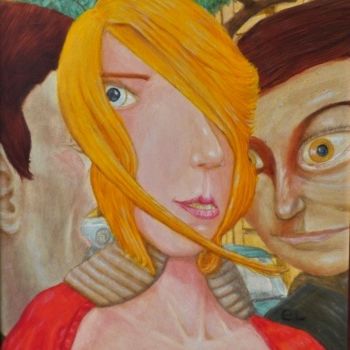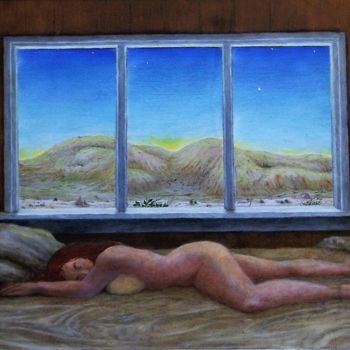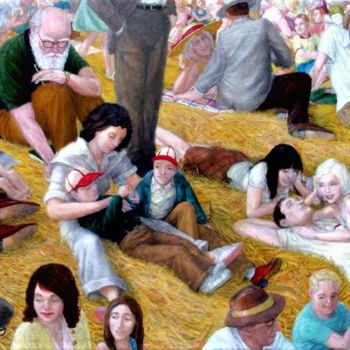Melancholia in the Future (2016) Drawing by Edwin Loftus
Sold
See more from Edwin LoftusThe artist offers works on commission
Did you miss the opportunity to buy this work? Good news: the artist can also create a custom work, just for you!
Seller Edwin Loftus
This image is available for download with a licence
Seller Edwin Loftus
-
Original Artwork (One Of A Kind)
Drawing,
Pastel
on Paper
- Dimensions Height 8in, Width 6in
- Framing This artwork is not framed
- Categories Drawings under $1,000 Illustration Everyday Life
In part this is because the acute, reactive form of depression, is part of our natural survival systems, a slowing down in response to major changes that induces us to reflect on new elements in our lives and make adjustments in our understanding of how to proceed in the future.
Beginning in the womb, we begin to formulate theories about what is happening to and around us, a hypothesis that provides us with a basis for gauging our responses and evaluating our chances of manipulating events and their effects in the future.
This is a mechanical process consisting of the exchanges of chemical and electrical impulses in and between our neuron receptor sites and possibly involving the glial cells between them. Our neurons grow new receptors and arrange the chains of molecules that appear to act as conduits directing the flow of free electrons in the neurons. Our "perceptions" are the ever-developing dominant themes in our physical responses to stimuli external to our processing mechanism, (the brain), and we are the ongoing process of stimuli, to signaling, to a processing between neurons and regions of the brain, to signaling of response and feedback in the form of new external stimuli. What we perceive as reality, is the process of fitting signals in the form of single molecules and single electrons into the patterns we have formulated and think best fits them as reinforced by ongoing perception and response.
Subjectively, reality to each of us is what each of us perceives it to be. But that does not say, as many post-Positivist theories would hold, that "perception is reality." Perceptions suggest that there is an objective reality, unaffected by perception, (the falling tree making a sound when no one can hear it). Schrodinger's cat is either alive or dead, we just don't know which. Not, because we don't know which, it exists in a state of potentiality of being both alive and dead. Our inability to know does not affect its nature of being, Kant's theoretical noumena versus phenomena.
None of that helps, if you are depressed. If so, and it doesn't fade fast enough for you, try home remedies, make changes in your life, and then seek medical help for a physical malfunction.
Related themes
Edwin Loftus is an American painter and draftsman born in 1951. His interest in art began at the age of 4 when he decided to draw something real rather than working from his imagination.
As a child he excelled at drawing and as a teenager he began to experiment with oil painting. In college, he took courses in art and art history and realized that true art had nothing to do with the quality of the drawing or painting, but that it had to have the ambition to push the boundaries and expand the visual experience.
He also studied philosophy, psychology and history and quickly realized that it was just another art establishment trying to defend its elitist industry and reward system. Their skills were almost non-existent, they knew nothing about psychology, perception or stimulus response, and they were extensions of the belief system that made communism, fascism and other forms of totalitarianism such destructive forces in the world. They literally believe that art shouldn't be available to ordinary human beings, but only to an elite "sophisticated" enough to understand it.
Edwin Loftus realized that the emperors of art had no clothes, but they were still the emperors. Gifted in art, he worked hard to acquire this skill. So he found other ways to make a living and sold a few artworks from time to time. For sixty years, many people enjoyed his works and some collected them.
Today, Edwin Loftus is retired. Even if he sold all his paintings for the price he asked, "artist" would be the lowest paid job he ever had... but that's the way it is. It won't matter to him after he dies. He just hopes that some people will like what he does enough to enjoy it in the future.
-
Nationality:
UNITED STATES

- Date of birth : 1951
- Artistic domains: Works by artists with a certified artist value,
- Groups: Certified Artists Contemporary American Artists









